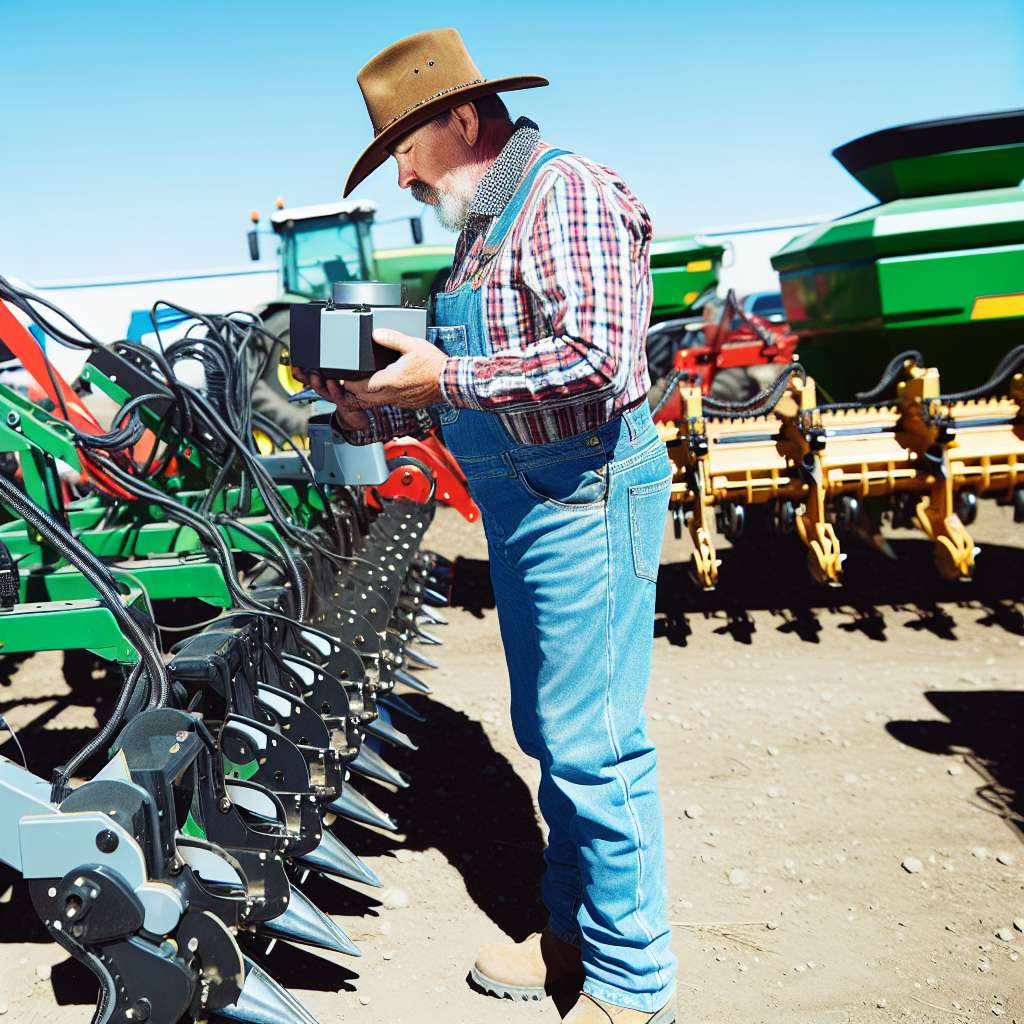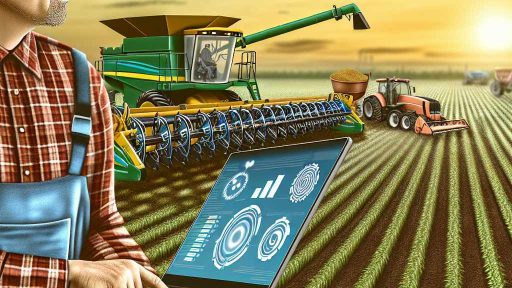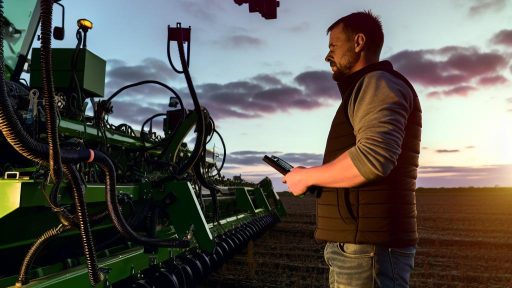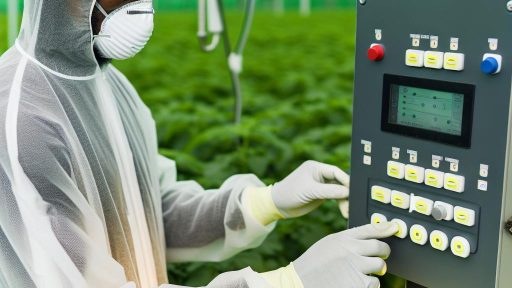Introduction to Automated Machinery in Small Farming
Automated machinery revolutionizes small farming operations.
Farmers can enhance efficiency and productivity easily.
This technology minimizes labor costs significantly.
Moreover, it reduces the physical strain on farmers.
As a result, farmers can focus on more strategic tasks.
Types of Automated Machinery
Various types of automated machinery are available today.
For instance, seeders streamline the planting process.
Harvesters simplify the collection of crops efficiently.
Additionally, irrigation systems optimize water usage.
Farm management software aids in planning operations.
Benefits of Automation in Small Farms
Automation offers numerous advantages to small farms.
Firstly, it boosts productivity by speeding up processes.
Secondly, it ensures consistency in farming tasks.
Also, automated machines can operate long hours.
This capability enhances crop yields over time.
Transform Your Agribusiness
Unlock your farm's potential with expert advice tailored to your needs. Get actionable steps that drive real results.
Get StartedFactors to Consider When Selecting Machinery
Choosing the right automated machinery involves critical factors.
Budget constraints often dictate machinery selection.
Moreover, size and scale of farming operations matter significantly.
Farmers should assess the specific needs of their crops.
Compatibility with existing equipment is also essential.
Future Trends in Automated Farming
Technology continues to evolve in the farming sector.
Future trends indicate a rise in robotics usage.
Additionally, AI will enhance decision-making processes.
Data analytics will track performance and optimize operations.
Ultimately, these advancements will reshape small farming entirely.
Assessing Your Farm’s Specific Needs and Goals
Defining Your Agricultural Objectives
Start by outlining your primary farming objectives.
Consider whether you want to increase yields or diversify crops.
Identifying these goals helps determine the necessary machinery.
Evaluating Your Current Resources
Assess the current state of your farm’s resources.
This includes labor, land, and machinery.
Understanding your available resources informs your equipment needs.
Identifying Specific Crop and Livestock Needs
Different crops and livestock require different machinery.
For instance, grains may need harvesters while vegetables need planters.
Recognizing these specific requirements is crucial for selection.
Considering Farm Size and Layout
The size and layout of your farm impact machinery choices.
A smaller farm may benefit from compact, versatile machines.
Larger operations might require specialized equipment for efficiency.
Anticipating Future Growth
Think about your farm’s future growth and expansion plans.
Investing in adaptable machinery can support your development.
Showcase Your Farming Business
Publish your professional farming services profile on our blog for a one-time fee of $200 and reach a dedicated audience of farmers and agribusiness owners.
Publish Your ProfileKeep in mind how changes may affect your machinery needs.
Budgeting for Machinery Investments
Establish a budget for purchasing new machinery.
Factor in both upfront costs and ongoing maintenance expenses.
Understanding your financial limits guides your equipment selection.
Researching Automated Machinery Options
Explore various automated machinery options available.
Look for models that align with your specific needs.
Read reviews and case studies to gather insights from other farmers.
Consulting with Industry Experts
Seek advice from agricultural experts and equipment dealers.
Their experience can provide valuable perspectives on your choices.
Engaging with professionals can also offer recommendations tailored to your farm.
Testing and Trialing Equipment
If possible, test machinery before making a purchase.
Many manufacturers offer demo models or trial periods.
This hands-on experience can help you make an informed decision.
Key Features to Look for in Automated Farming Equipment
Efficiency and Productivity
Automated machinery should significantly enhance farming efficiency.
This equipment often reduces the time spent on labor-intensive tasks.
Additionally, it can improve overall productivity for small farms.
Durability and Reliability
When selecting equipment, prioritize durability and reliability.
Well-constructed machinery withstands harsh farming conditions.
Investing in reliable products minimizes costly repairs over time.
Ease of Use and Maintenance
User-friendly controls simplify operation for farmers.
Look for machines with easy access for maintenance and repairs.
Efficient maintenance procedures save valuable time in the field.
Cost-Effectiveness
Consider both the initial investment and long-term savings.
Automated systems should offer a good return on investment.
Examine the cost of replacement parts and ongoing maintenance.
Technology Integration
Modern machines often include advanced technology features.
GPS tracking and automated monitoring are valuable tools.
These technologies can optimize planting and harvesting processes.
Scalability
Select equipment that can grow with your farming operation.
Scalable solutions adapt to changing crop varieties and sizes.
This flexibility ensures longevity in your investment.
Learn More: Precision Farming With Artificial Intelligence
Types of Automated Machinery Suitable for Small Farms
Planting Equipment
Automated planting equipment simplifies the sowing process.
Seeders and planters come in various models.
Some of them include precision seeders for better yield.
These machines ensure consistent seed depth and spacing.
Harvesting Machinery
Harvesting machinery makes collection faster and easier.
Small-scale combines and mini-harvesters are popular choices.
They are designed to handle various crop types efficiently.
Moreover, these machines reduce labor costs significantly.
Showcase Your Farming Business
Publish your professional farming services profile on our blog for a one-time fee of $200 and reach a dedicated audience of farmers and agribusiness owners.
Publish Your ProfileIrrigation Systems
Smart irrigation systems optimize water usage on farms.
Automated drip irrigation is effective for small crops.
These systems ensure plants receive adequate moisture.
Additionally, they can adapt to weather changes automatically.
Pest and Disease Management Tools
Automated pest control devices help protect crops effectively.
Some options include drones that spray pesticides accurately.
These tools minimize chemical use and environmental impact.
Furthermore, early detection systems can spot diseases promptly.
Soil Management Equipment
Soil management equipment enhances soil health sustainably.
Automated tillers and cultivators prepare the land efficiently.
They help incorporate organic matter without excessive disturbance.
Consequently, these machines contribute to improved soil fertility.
Record Keeping and Management Software
Automated management software streamlines farm operations.
This software tracks production, inventory, and labor costs.
Farmers can analyze data for better decision-making.
Moreover, it helps in complying with regulations effectively.
Explore Further: Enhancing Soil Health with IoT-Based Monitoring Tools
Budget Considerations: Cost vs. Benefit Analysis
Understanding Your Budget
Establishing a clear budget is essential for small farms.
Your budget will guide all machinery decisions.
Begin by assessing your current financial situation.
Consider factors such as cash flow, loans, and investments.
Evaluating Costs
The initial purchase price of machinery is a major cost.
However, remember to factor in maintenance expenses.
Additionally, consider how energy-efficient options can reduce fees over time.
Calculate any additional costs, such as training or installation.
Benefits of Automation
Automated machinery can improve efficiency significantly.
It often leads to greater crop yields and reduced labor needs.
Furthermore, automation can minimize the risk of human error.
Consider the potential for increased profitability over time.
Cost vs. Benefit Analysis
Conduct a thorough cost vs. benefit analysis before purchasing.
Use a simple formula: weigh total costs against projected benefits.
This analysis will help clarify whether an investment is worthwhile.
Compare different machinery options side by side.
Long-Term Financial Planning
Think about the long-term financial impact of your choices.
Automated machinery may have a higher upfront cost.
Nonetheless, its return on investment can outweigh initial expenses.
Adjust your financial plans as your farm grows and technology evolves.
Make Informed Decisions on Machinery
In summary, budget considerations are crucial when selecting machinery.
Understand costs and analyze benefits carefully.
Make informed decisions to ensure your small farm thrives.
Showcase Your Farming Business
Publish your professional farming services profile on our blog for a one-time fee of $200 and reach a dedicated audience of farmers and agribusiness owners.
Publish Your ProfileLearn More: IoT Security Considerations for Agricultural Systems
Researching and Comparing Different Brands and Models
Identifying Your Needs
Start by assessing your specific farming needs.
Consider the types of crops or livestock you manage.
Determine the size of your farm and available budget.
This understanding will guide your research effectively.
Gathering Information
Utilize online resources to gather detailed information.
Websites dedicated to agricultural machinery can be invaluable.
Visit relevant forums and read reviews from other farmers.
These insights often highlight functionality and reliability.
Comparing Brands
Compile a list of brands that suit your requirements.
Investigate each brand’s reputation in the market.
Note their strengths and weaknesses based on user feedback.
Highlight any unique features that stand out.
Evaluating Models
Once you have brand options, explore specific models.
Consider features such as automation level and ease of use.
Evaluate the technical specifications to ensure suitability.
Pay attention to the warranty and support offered.
Making Comparisons
Create a comparison chart to visualize differences.
Include key factors like price, features, and customer ratings.
This organization helps in making informed decisions.
Additionally, consider visiting local dealerships for demos.
Consulting Experts
Seek advice from agricultural extension officers.
Consult industry experts or experienced farmers.
They offer practical insights that may not be online.
Networking with other farmers can provide additional support.
Finalizing Your Choice
After thorough research, narrow down your options.
Evaluate the pros and cons of each model.
Factor in budget, warranty, and long-term support.
Ultimately, choose the machinery that fits your farm best.
Explore Further: Renewable Energy Solutions Transforming Modern Agricultural Operations

Maintenance and Support
Importance of After-Sales Service
Selecting automated machinery is a significant investment for small farms.
After-sales service plays a crucial role in this decision.
Having reliable support can minimize downtime during the crucial farming seasons.
Support services extend beyond the initial purchase.
They encompass maintenance, repair, and ongoing technical assistance.
Farmers should prioritize suppliers who offer robust after-sales support.
This support often includes regular maintenance check-ups and troubleshooting assistance.
For instance, Oliver’s Farm Equipment provides yearly service contracts for their clients.
These contracts ensure machinery operates at optimal efficiency.
Moreover, good after-sales support builds a relationship between the farmer and supplier.
Showcase Your Farming Business
Publish your professional farming services profile on our blog for a one-time fee of $200 and reach a dedicated audience of farmers and agribusiness owners.
Publish Your ProfileThis relationship can lead to better customization and adaptation of machinery to specific needs.
Evaluating After-Sales Services
Farmers should evaluate the quality of after-sales services before making purchases.
This evaluation includes checking customer reviews and testimonials.
Additionally, it’s wise to inquire about response times and service availability.
Some companies, like GreenField Machinery, offer 24/7 support for emergencies.
This availability proves essential during critical harvest periods.
Cost Considerations
While after-sales services are important, consider potential costs.
Some providers may charge additional fees for maintenance services.
Farmers need to weigh these costs against the value of the services offered.
For example, investing in comprehensive support may save money in the long run.
Effective maintenance can prolong the life of the machinery.
Training and Resources
After-sales service often includes training for users of the machinery.
This training enhances operational efficiency and safety.
Additionally, access to resources and documentation is vital.
Farmers should ensure they receive manuals and guides with their equipment.
Moreover, webinars and workshops offered by suppliers can improve user knowledge.
Investing time in training can significantly boost productivity on the farm.
Real-Life Case Studies of Successful Small Farm Automation
Case Study: Green Acres Farm
Green Acres Farm implemented automated irrigation systems.
This decision reduced water consumption significantly.
As a result, crop yields improved dramatically.
Farm owner Sara Mitchell noted increased efficiency.
Moreover, labor costs decreased because of automation.
Case Study: Happy Harvest Organic Farm
Happy Harvest adopted robotic harvesters for their crops.
This innovation allowed for faster harvesting processes.
Owners Tom and Lisa Johnson reported higher profits.
Consequently, their operational capacity increased significantly.
Ultimately, their produce quality also improved.
Case Study: Sunny Ridge Vineyard
The drones provided real-time data on plant health.
This data helped in precise decision-making.
Owner Michael Lee emphasized enhanced grape quality.
Furthermore, their yield increased by 20%.
Case Study: Meadow View Livestock Farm
Meadow View integrated automated feeding systems for livestock.
This system resulted in consistent feeding schedules.
Owner Robert Davis observed better animal health.
Additionally, labor hours were significantly reduced.
Thus, their overall production efficiency improved.
Future Trends in Agricultural Machinery for Small Farms
Increased Automation
Automated machinery simplifies daily tasks for small farmers.
Farmers can complete repetitive tasks more efficiently.
This trend allows farmers to save time and improve productivity.
Showcase Your Farming Business
Publish your professional farming services profile on our blog for a one-time fee of $200 and reach a dedicated audience of farmers and agribusiness owners.
Publish Your ProfileMoreover, advanced technology reduces human labor requirements.
Artificial Intelligence Integration
Artificial Intelligence (AI) is becoming essential in farming equipment.
AI helps analyze crop health and optimize yields.
This technology can also enhance pest and disease management.
Consequently, farmers can make data-driven decisions more effectively.
Improvements in Sustainability
Modern machinery focuses on sustainable farming practices.
Farmers are increasingly seeking eco-friendly solutions.
This shift reduces waste and conserves resources efficiently.
Furthermore, sustainable machinery helps meet consumer demand for organic products.
Connectivity and Smart Farming
Smart farming technology is revolutionizing small farms.
Machinery now features connectivity for real-time data sharing.
This advancement enables better tracking of farm operations.
As a result, farmers can optimize their processes and improve efficiency.
Customizable Solutions
Farmers now prefer machinery that caters to their specific needs.
Customization allows for enhanced versatility and adaptability.
These solutions can be tailored to different crop types and farm sizes.
Thus, farmers can maximize their return on investment.
Additional Resources
AI in Agriculture and Farming: Revolutionizing Crop Growth – Intellias
Automation and digitization of agriculture using artificial intelligence …




